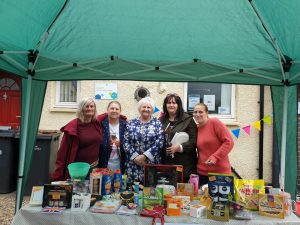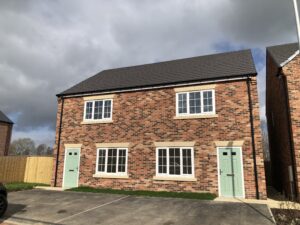At the end of another brilliant Rural Housing week, Peter Locke, Head of Communities at North Star has taken some time to reflect on why this issue is so important.
Our organisation is in the privileged position of working in both urban and very rural locations which, we feel gives us some insight into the benefits, and challenges, of living in these communities.

Our history of working with rural housing broadly begins in 2006 when, Teesdale Housing Association was formed as part of the stock transfer process from Teesdale District Council, in County Durham. Prior to this Endeavour Housing Association (from which North Star was formed) had predominantly operated in urban Teesside, in the towns of Middlesbrough, Stockton and Thornaby.
We quickly realized that, whilst that were clearly lots of skills and experience we could transfer across to successfully work with these communities, there were things unique to rural communities that we would have to learn.
We were lucky to have a number of fantastic staff transfer at the same time. Their knowledge, experience and most importantly, their relationships, were invaluable in ensuring we were able to keep delivering an effective rural service.

Over the years we have extended our commitment to rural communities by continuing to build new properties in Teesdale and extending our reach into rural North Yorkshire.
We thought we would use this opportunity to share some of the lessons we’ve learned over the last 17 years of being a landlord with over 900 rural homes working closely with these communities.
Rural wealth can mask rural poverty. From 2011 North Star has operated a priority community approach that has sought to understand in which of our communities our investment will have the most impact. We have utilized a community sustainability matrix that gathers both all of our data and that of statutory bodies to help us understand what is happening across our geography. We have always augmented this with relational and anecdotal feedback and we would strongly recommend other organisations capture this too.
When comparing the urban and rural communities we work in, the socio-economic challenges of the town-centre locations often dwarf those of rural communities. What this, admittedly very basic, interpretation of the data misses is the ‘tax’ on low income families that live in rural areas. We have listed some examples of the kind of challenges families may face in rural communities that have been shared by partners and tenants over the years:
1. Rural communities often have poor access to public transport which minimizes their access not only to leisure activities but, critical services. Some villages may have a medical practice but access to dentistry, employment services and training is much more difficult.
2. Access to affordable food is often much more difficult. Local shops often charge higher prices for a smaller selection of food. Families without access to reliable transport are often compelled to pay these prices and moreover have access to less healthy food choices.
3. Finally, access to money is often more expensive for rural communities with cash machines charging up to £2.50 for people to withdraw their money. Whilst this is not a problem that is exclusive to rural communities, it is often one that these communities have little choice over when compared to urban counterparts.
People want to stay in the communities they grew up in but, that can be difficult. The UK as a whole is facing a well-documented housing crisis and this has had a particular impact in rural communities. It is something North Star and a number of partners have been working hard to address. The issue seems to have been exacerbated following the pandemic. We are hearing many examples of people moving to rural locations, having previously lived in urban locations following the rise in popularity of hybrid working. There is clearly nothing inherently wrong with this but, the impact of rising prices and increasing demand for properties, often sees local people priced out of the market. Particularly young people.
Finally, rural communities are a hot bed of innovation and opportunity in a new digital world. We have seen challenges in connectivity for some of our rural communities but, thanks to a number of government and infrastructure initiatives we are starting to see this issue become less of barrier. That has opened the door to a number of small, artisan and cottage industries that can operate brilliantly in rural communities. Diversification of traditional farming businesses has offered a wealth of opportunities that has seen rural market towns arguably adapt better to the digital age than their urban counterparts.
At North Star we are immensely proud of the rural communities we work in and will continue to work closely with them and our partners to ensure we continue to offer affordable housing to those that need it. We know there are issues in rural communities, that can sometimes be hidden by the ‘idyllic country lifestyle’ construct that some people may subscribe to. However, we also know that rural communities provide opportunity, unlimited access to green space and an unrivalled sense of belonging and identity.
We look forward to another Rural Housing Week in which we will again celebrate the successes of our communities and highlight the opportunities to ensure access to housing and services is equitable for all, wherever they to choose to call home.















